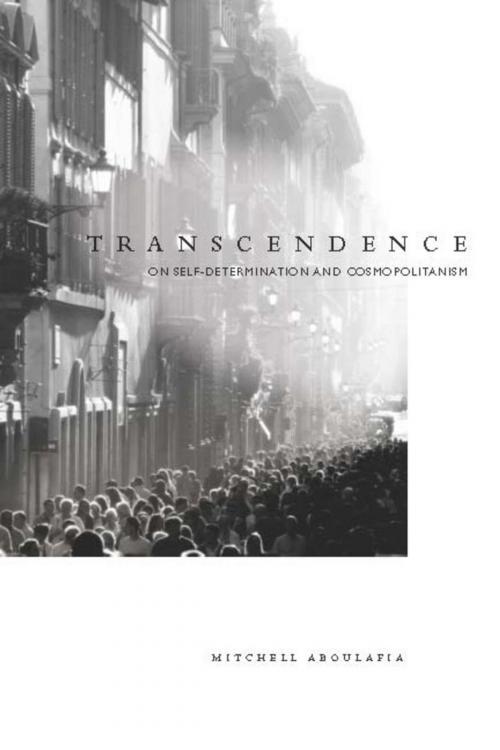Transcendence
On Self-Determination and Cosmopolitanism
Nonfiction, Religion & Spirituality, Philosophy, Ethics & Moral Philosophy, Social & Cultural Studies, Social Science, Sociology| Author: | Mitchell Aboulafia | ISBN: | 9780804775106 |
| Publisher: | Stanford University Press | Publication: | July 14, 2010 |
| Imprint: | Stanford University Press | Language: | English |
| Author: | Mitchell Aboulafia |
| ISBN: | 9780804775106 |
| Publisher: | Stanford University Press |
| Publication: | July 14, 2010 |
| Imprint: | Stanford University Press |
| Language: | English |
Notions of self-determination are central to modern politics, yet the relationship between the self-determination of individuals and peoples has not been adequately addressed, nor adequately allied to cosmopolitanism. Transcendence seeks to rectify this by offering an original theory of self and society. It highlights overlooked affinities between existentialism and pragmatism and compares figures central to these traditions. The book's guiding thread is a unique model of the social development of the self that is indebted to the pragmatist George Herbert Mead. Drawing on the work of thinkers from both sides of the Atlantic—Hegel, William James, Dewey, Du Bois, Sartre, Marcuse, Bourdieu, Rorty, Neil Gross, and Jean-Baker Miller—and according supporting roles to Adam Smith, Habermas, Herder, Charles Taylor, and Simone de Beauvoir, Aboulafia combines European and American traditions of self-determination and cosmopolitanism in a new and persuasive way.
Notions of self-determination are central to modern politics, yet the relationship between the self-determination of individuals and peoples has not been adequately addressed, nor adequately allied to cosmopolitanism. Transcendence seeks to rectify this by offering an original theory of self and society. It highlights overlooked affinities between existentialism and pragmatism and compares figures central to these traditions. The book's guiding thread is a unique model of the social development of the self that is indebted to the pragmatist George Herbert Mead. Drawing on the work of thinkers from both sides of the Atlantic—Hegel, William James, Dewey, Du Bois, Sartre, Marcuse, Bourdieu, Rorty, Neil Gross, and Jean-Baker Miller—and according supporting roles to Adam Smith, Habermas, Herder, Charles Taylor, and Simone de Beauvoir, Aboulafia combines European and American traditions of self-determination and cosmopolitanism in a new and persuasive way.















